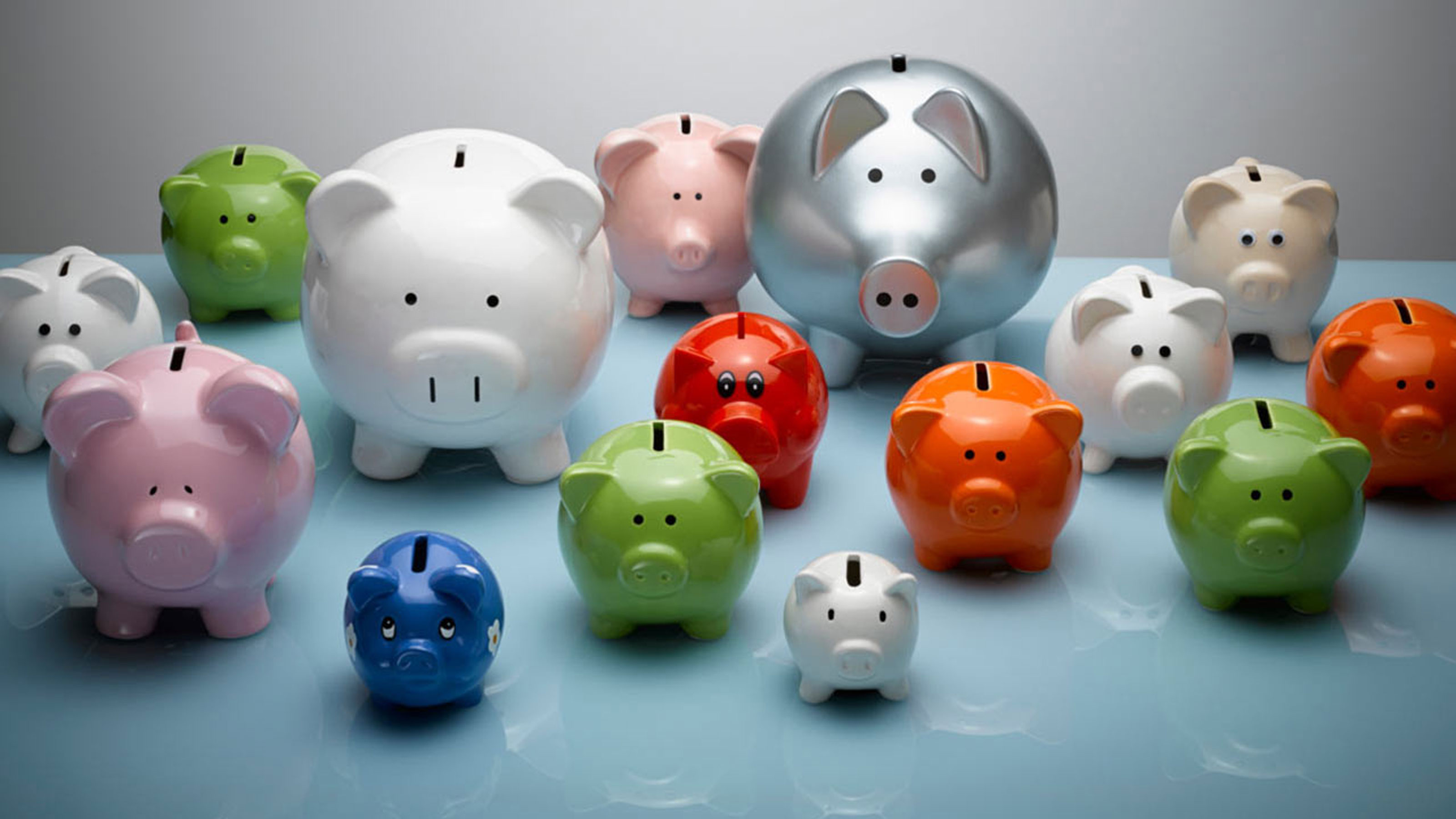5 Ways to Track Your Budget in the Years Before You Retire
To be prepared for retirement, you need to have a firm idea of your spending needs. Here are some different methods to make sure you’re on track.


Profit and prosper with the best of Kiplinger's advice on investing, taxes, retirement, personal finance and much more. Delivered daily. Enter your email in the box and click Sign Me Up.
You are now subscribed
Your newsletter sign-up was successful
Want to add more newsletters?

Delivered daily
Kiplinger Today
Profit and prosper with the best of Kiplinger's advice on investing, taxes, retirement, personal finance and much more delivered daily. Smart money moves start here.

Sent five days a week
Kiplinger A Step Ahead
Get practical help to make better financial decisions in your everyday life, from spending to savings on top deals.

Delivered daily
Kiplinger Closing Bell
Get today's biggest financial and investing headlines delivered to your inbox every day the U.S. stock market is open.

Sent twice a week
Kiplinger Adviser Intel
Financial pros across the country share best practices and fresh tactics to preserve and grow your wealth.

Delivered weekly
Kiplinger Tax Tips
Trim your federal and state tax bills with practical tax-planning and tax-cutting strategies.

Sent twice a week
Kiplinger Retirement Tips
Your twice-a-week guide to planning and enjoying a financially secure and richly rewarding retirement

Sent bimonthly.
Kiplinger Adviser Angle
Insights for advisers, wealth managers and other financial professionals.

Sent twice a week
Kiplinger Investing Weekly
Your twice-a-week roundup of promising stocks, funds, companies and industries you should consider, ones you should avoid, and why.

Sent weekly for six weeks
Kiplinger Invest for Retirement
Your step-by-step six-part series on how to invest for retirement, from devising a successful strategy to exactly which investments to choose.
There are many things I’m sure you’d rather do than evaluate your finances. Going to the dentist and cleaning out the garage come to mind. Whether you’re an avid budgeter who reviews your finances regularly, or one who would rather ignore that painful task, one thing is certain: Once you retire and need to start living off retirement income and investment earnings, you’ll need to have a good handle on how much money you’ll have each month, and what your monthly expenditures will be.
Until you’re aware of what you spend, you won’t be able to figure out which areas you may need to rein in to meet your long-term goals. Well before you get to retirement, you’ll want to track your budget. Whether you’re the detailed spreadsheet type, or the “I’d-rather-be-doing-anything-else-but-budget” type, here are several options to do just that.

1. Utilize a template
Long gone are the days when you’d have to sit down with your gridded notebook and create a template from scratch. With so many different online and free resources, you can find a template that fits your desired level of detail. Kiplinger has its own household budget worksheet. Another example is Mint, which offers a free template. If you prefer putting pencil to paper and are a Microsoft Office user, you have access to their various templates as well. Also, a quick Google search will take you to a whole selection of options.

2. Use an online tracking tool or app
With so many online tools and apps, why not skip the templates and spreadsheets altogether and let an app do the heavy lifting? One of the more popular apps I recommend to clients is Mint, which will allow you to link your financial accounts into one program and aggregate the data for you.
Some work is still required on your part. You’ll still need to take the time to link your accounts and help the app classify expenses that it doesn’t recognize. But you don’t need to fret about the details: Even if you don’t classify every little expense and your categories aren’t perfect, the program will give you a big-picture view of what your inflows and outflows are from month to month.

3. Use a single credit card
Electronic payments are here — and becoming more commonplace and secure than carrying around cash. If you’re disciplined enough to pay off your credit cards when they’re due each month, this might be the method for you. Most credit card companies will track your expenses and even categorize them. In addition, many will allow you to export your transactions to a spreadsheet — or even to accounting software like QuickBooks.

4. Utilize different credit cards for different types of expenses
For example, if you put all of your food on one credit card, at the end of the month the statement will easily summarize what your total expenditure is for that particular category. An added bonus with many rewards credit cards is you’ll oftentimes get awarded varying points, depending on the type of expense.
For example, some cards reward you for 2x points if you use the card for restaurants and dining, and others will award higher points if you use the card for travel. Why not try splitting up different types of expenses on different cards to better organize your expenses and maximize those rewards? Again, be sure to pay off your balances each month.

5. Utilize different bank accounts
This method works great if you’re not a fan of charging everything to your credit cards or have trouble paying off your balances in full. Similar to credit card companies, many banks are starting to offer more robust tracking tools within their websites, with many allowing you to view your spending categories in different report formats, and also the ability to download transactions into a spreadsheet.
You could try using different accounts for different types of expenses. For example, using one account to pay off fixed expenses, including debt repayments, and one for your long-term savings — with whatever is left over going into an account for your “wants.” Once the “want” account starts to run low, you’ll know you’re getting close to hitting your budget.

Build up your budget-tracking “muscle”
Remember, as you’re tracking your budget, pay special attention to your monthly “needs” or essential expenses, such as housing, transportation, utilities, medical expenses, debt payments and food, versus your “wants,” such as entertainment and travel expenses. Since you’ll be living off a 401(k), pension, Social Security and/or investment income, you’ll want to make sure that all these sources will be sufficient to cover your basic living expenses. Anything in excess of that can go toward your other goals or “wants.”
Tracking a budget is like developing any other new habit. It’s not easy at first. There will be some days when you just don’t feel like doing it. Break the tasks into smaller goals and block out time on your calendar to get to it. If you’re anything like me, if I don’t schedule something it won’t get done. Also, the nice thing about the different options I’ve listed above is that you can combine different tracking methods to find a system that works for you.
The reward for taking the time and effort to do this is obvious: Greater peace of mind and a clearer picture of your spending needs when you’re ready to take that leap into retirement.
Profit and prosper with the best of Kiplinger's advice on investing, taxes, retirement, personal finance and much more. Delivered daily. Enter your email in the box and click Sign Me Up.

Julia Pham joined Halbert Hargrove as a Wealth Adviser in 2015. Her role includes encouraging HH clients to explore and fine-tune their aspirations — and working with them to create a road map to attain the goals that matter to them. Julia has worked in financial services since 2007. Julia earned a Bachelor of Arts degree cum laude in Economics and Sociology, and an MBA, both from the University of California at Irvine.
-
 Nasdaq Leads a Rocky Risk-On Rally: Stock Market Today
Nasdaq Leads a Rocky Risk-On Rally: Stock Market TodayAnother worrying bout of late-session weakness couldn't take down the main equity indexes on Wednesday.
-
 Quiz: Do You Know How to Avoid the "Medigap Trap?"
Quiz: Do You Know How to Avoid the "Medigap Trap?"Quiz Test your basic knowledge of the "Medigap Trap" in our quick quiz.
-
 5 Top Tax-Efficient Mutual Funds for Smarter Investing
5 Top Tax-Efficient Mutual Funds for Smarter InvestingMutual funds are many things, but "tax-friendly" usually isn't one of them. These are the exceptions.
-
 Social Security Break-Even Math Is Helpful, But Don't Let It Dictate When You'll File
Social Security Break-Even Math Is Helpful, But Don't Let It Dictate When You'll FileYour Social Security break-even age tells you how long you'd need to live for delaying to pay off, but shouldn't be the sole basis for deciding when to claim.
-
 I'm an Opportunity Zone Pro: This Is How to Deliver Roth-Like Tax-Free Growth (Without Contribution Limits)
I'm an Opportunity Zone Pro: This Is How to Deliver Roth-Like Tax-Free Growth (Without Contribution Limits)Investors who combine Roth IRAs, the gold standard of tax-free savings, with qualified opportunity funds could enjoy decades of tax-free growth.
-
 One of the Most Powerful Wealth-Building Moves a Woman Can Make: A Midcareer Pivot
One of the Most Powerful Wealth-Building Moves a Woman Can Make: A Midcareer PivotIf it feels like you can't sustain what you're doing for the next 20 years, it's time for an honest look at what's draining you and what energizes you.
-
 I'm a Wealth Adviser Obsessed With Mahjong: Here Are 8 Ways It Can Teach Us How to Manage Our Money
I'm a Wealth Adviser Obsessed With Mahjong: Here Are 8 Ways It Can Teach Us How to Manage Our MoneyThis increasingly popular Chinese game can teach us not only how to help manage our money but also how important it is to connect with other people.
-
 Looking for a Financial Book That Won't Put Your Young Adult to Sleep? This One Makes 'Cents'
Looking for a Financial Book That Won't Put Your Young Adult to Sleep? This One Makes 'Cents'"Wealth Your Way" by Cosmo DeStefano offers a highly accessible guide for young adults and their parents on building wealth through simple, consistent habits.
-
 Global Uncertainty Has Investors Running Scared: This Is How Advisers Can Reassure Them
Global Uncertainty Has Investors Running Scared: This Is How Advisers Can Reassure ThemHow can advisers reassure clients nervous about their plans in an increasingly complex and rapidly changing world? This conversational framework provides the key.
-
 I'm a Real Estate Investing Pro: This Is How to Use 1031 Exchanges to Scale Up Your Real Estate Empire
I'm a Real Estate Investing Pro: This Is How to Use 1031 Exchanges to Scale Up Your Real Estate EmpireSmall rental properties can be excellent investments, but you can use 1031 exchanges to transition to commercial real estate for bigger wealth-building.
-
 Should You Jump on the Roth Conversion Bandwagon? A Financial Adviser Weighs In
Should You Jump on the Roth Conversion Bandwagon? A Financial Adviser Weighs InRoth conversions are all the rage, but what works well for one household can cause financial strain for another. This is what you should consider before moving ahead.
